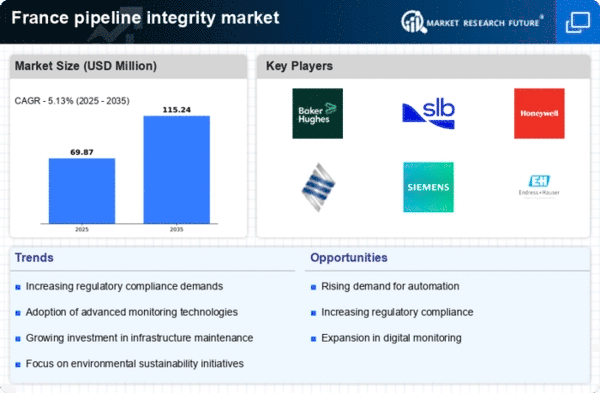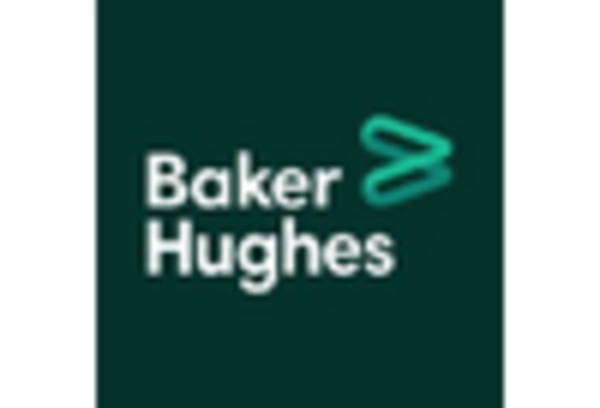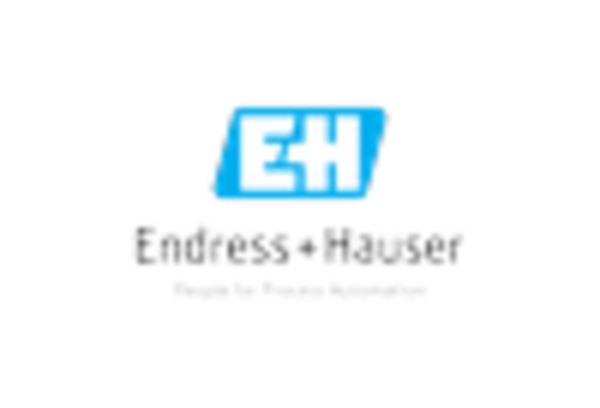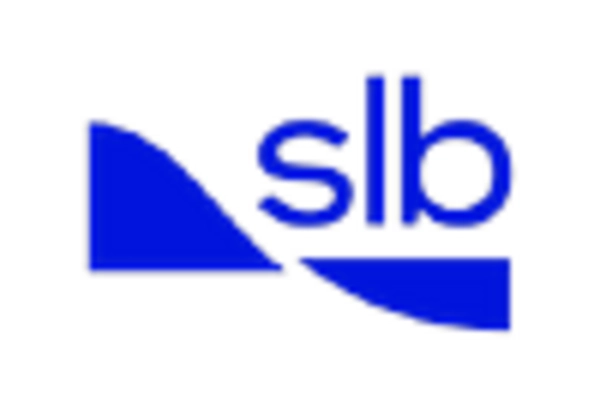Rising Energy Demand
France's energy consumption is projected to rise, driven by economic growth and urbanization. The pipeline integrity market is poised to benefit from this trend as the need for reliable energy transportation becomes increasingly critical. With energy demand expected to increase by approximately 15% over the next decade, the integrity of pipeline systems will be paramount. This situation compels operators to invest in integrity management solutions to prevent leaks and failures, ensuring a continuous supply of energy. Consequently, the pipeline integrity market is likely to see a corresponding increase in demand for monitoring and maintenance services.
Focus on Risk Management
In the context of the pipeline integrity market, risk management has become a focal point for operators in France. The need to mitigate risks associated with pipeline failures, such as environmental damage and economic losses, drives the adoption of integrity management programs. Regulatory bodies are emphasizing the importance of proactive risk assessments and management strategies. This shift is likely to lead to increased investments in technologies that enhance monitoring and inspection capabilities. As a result, the pipeline integrity market is expected to grow as companies seek to comply with stringent risk management requirements.
Emerging Technologies in Inspection
The pipeline integrity market is witnessing a transformation due to the emergence of innovative inspection technologies. Techniques such as drones, smart pigs, and advanced sensors are gaining traction in France, enabling more efficient and accurate assessments of pipeline conditions. These technologies not only enhance the safety and reliability of pipeline operations but also reduce operational costs. The integration of artificial intelligence and machine learning into inspection processes further optimizes maintenance schedules and predictive analytics. Consequently, the adoption of these technologies is likely to propel growth in the pipeline integrity market as operators seek to leverage advancements for improved performance.
Increasing Infrastructure Investment
The pipeline integrity market in France is experiencing a surge in demand due to increasing investments in infrastructure. The French government has allocated approximately €10 billion for the modernization of its energy infrastructure, which includes pipelines. This investment aims to enhance the safety and efficiency of existing systems while expanding capacity to meet growing energy demands. As a result, companies operating in the pipeline integrity market are likely to benefit from enhanced opportunities for inspection, maintenance, and repair services. The focus on upgrading aging infrastructure is expected to drive the adoption of advanced technologies, thereby fostering growth in the pipeline integrity market.
Environmental Regulations and Sustainability Initiatives
The pipeline integrity market in France is increasingly influenced by stringent environmental regulations and sustainability initiatives. The French government is committed to reducing greenhouse gas emissions and promoting sustainable practices across industries. This commitment necessitates the implementation of robust pipeline integrity measures to prevent leaks and minimize environmental impact. Companies are therefore investing in eco-friendly technologies and practices to comply with regulations and enhance their sustainability profiles. As a result, the pipeline integrity market is expected to expand as organizations prioritize environmental stewardship alongside operational efficiency.
















